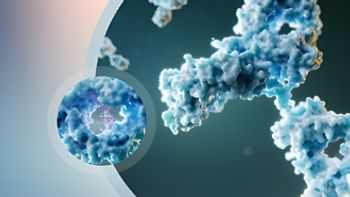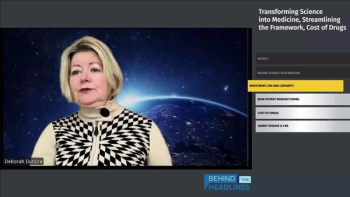
Downstream Technologies Continue to Transform the Industry
Downstream processing will continue to see shifts with the incorporation of modern, efficient technologies.
The world of downstream processing (DSP) has seen many changes throughout the years, whether it is through the incorporation of process analytical technologies (PAT) or various acquisitions, and it will continue to see shifts with the incorporation of modern, efficient technologies.
New tubing options
Different organizations are expanding their tubing equipment options to further solidify bioprocessing procedures. For example, Freudenberg Medical, a medical and pharmaceutical devices, components, and tubing manufacturer, announced the launch of a new thermoplastic elastomer (TPE) tubing (HeliFlex) on Sept. 29, 2022. This component is a high purity TPE designed for biopharmaceutical fluid transfer applications (1).
This option for tubing is ideal due to its ability to be heat-sealed, which helps to allow for easy, fast, and safe fluid transport and transfer. This product can also be welded into existing tubing lines, is sealable, translucent, and can be used in peristatic pumping applications. The TPE is also a more environmentally friendly option than silicone, which is where many organizations are starting to gravitate towards (1).
Process analytical technologies
A focus on utilizing PAT for DSP has started to become more prominent in the industry. In June 2022, Merck announced a collaboration with Agilent Technologies to further extend real-time monitoring and automated process control of critical process parameters and critical quality attributes in DSP. This is crucial to Bioprocessing 4.0 and to further enable real-time release (2).
Purification
To continue with efficient workflow and chromatography systems, companies such as Bio-Rad Laboratories are creating products (e.g., EconoFit Low-Pressure Prepacked Chromatography Column Packs) for resin screening to allow customers that are developing protein purification workflows to select the optimal chemistry for different targets. There are multiple resins offered in a prepacked format, including mixed-mode, cation, and anion exchange resin columns. Additionally, there is a pack designed for polyhistidine protein purification. Products being created in this format are intended to be used in multiple different chromatography systems (3).
New acquisitions and facilities
With the launch of new products and technologies comes various acquisitions and collaborations between biotechnology companies, facilities, and technology providers. For example, Astrea Bioseparations (Astrea Bio), a provider of bioseparation and purification technologies, acquired Delta Precision, a manufacturer of advanced chromatography columns for the biotechnology and pharmaceutical industries, on Jan. 9, 2023. This acquisition allows Astrea Bio to expand its product offerings to include a full range of high-performance chromatography columns for biomanufacturing (4).
Another major acquisition occurred on July 13, 2022, with Cytiva acquiring a new manufacturing facility in Muskgon, Mich. The facility is a chromatography resins manufacturing site, and the company is expected to expand resin manufacturing beyond Europe, where it has a bioprocess pilot-scale facility in Uppsala, Sweden, that the company opened in August 2018 (5). Further, Cytiva plans to renovate the Muskgon site into a 168,000 ft2 biomanufacturing center consisting of multiple buildings and is set to fit 200 associates upon completion. Planned construction started in Q3 of 2022, and the manufacturing aspect is expected to start in 2026 (6).
As for partnerships, some companies are looking to work together to establish scalable downstream manufacturing processes and address further purification challenges. Sartorius and RoosterBio, a biotechnology company focused on human mesenchymal stem/stromal cell (hMSC) and extracellular vesicle (EV) product and process development, announced on Jan. 5, 2023 their extension of a strategic collaboration. This extension is a continuation of a two-year collaboration that focused on the industrialization of cell-based regenerative cures, the goal of the new partnership is to work together to address purification challenges and establish scalable downstream manufacturing processes for exosome-based therapies (7).
This partnership is hoping to produce a hMSC-based exosome production platform that can deliver industry-leading yield, purity, and potency. Additionally, this collaboration will focus on the development of comprehensive analytical techniques for exosome characterization and the entire spectrum of EVs to further establish quantitative strategies for quality control of exosome purification intermediates and final drug product (7).
References
- Freudenberg Medical. Freudenberg Medical Launches HelixFlex TPE Tubing at Bioprocess International Conference. Press Release. Sept 29, 2022.
- Merck KGaA. MilliporeSigma Announces Collaboration with Agilent Technologies to Fill Industry Gap in Process Analytical Technologies for Downstream Processing. Press Release. June 14, 2022.
- PharmTech Editors, Protein Purification Column Packs. Pharmaceutical Technology, February 2023, Volume 47, (12). PharmTech.com. February 2, 2023.
- PharmTech Editors, Astrea Bioseparations Acquires Delta Precision. Press Release. PharmTech.com. Jan 9, 2023.
- Cytiva. Innovation Center to Advance Bioprocess Development. www.cytivalifesciences.com (accessed March 2, 2023).
- Cytiva. Cytiva Expanding US Operations. Press release. July 13, 2022.
- Sartorius. Sartorius Collaborates with RoosterBio to Advance Downstream Purification Processes for the Manufacture of Exosomes. Press Release. Jan 5, 2023.
Newsletter
Stay at the forefront of biopharmaceutical innovation—subscribe to BioPharm International for expert insights on drug development, manufacturing, compliance, and more.




